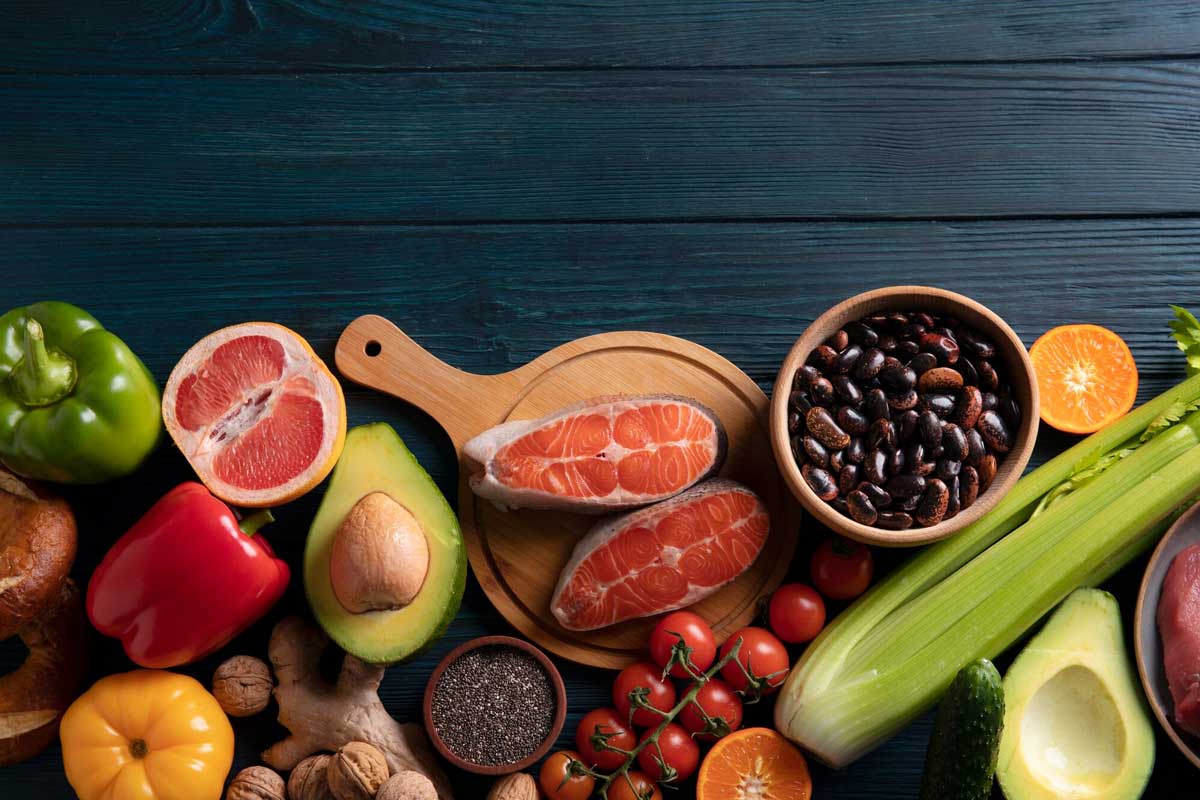Did you know that oxidative stress is linked to over 200 diseases? Yikes! But don’t worry, I’ve got some great news for you. By incorporating certain foods into your diet, you can fight off those pesky free radicals and give your body the protection it needs. In this article, we’ll explore the top 15 foods that reduce oxidative stress, helping you take charge of your health and feel amazing. Let’s dive in and discover nature’s antioxidant powerhouses!
Understanding Oxidative Stress and Its Impact on Health
Top 15 Foods That Reduce Oxidative Stress
Creating a Balanced Diet to Reduce Oxidative Stress
What Foods Get Rid of Oxidative Stress?
Which Vitamins Reduce Oxidative Stress?
What Foods Control Oxidation?
What Is the Best Antioxidant for Oxidative Stress?
Understanding Oxidative Stress and Its Impact on Health
Let’s start by demystifying oxidative stress and its effects on our bodies. Imagine your cells are like a bustling city, and free radicals are like little troublemakers running around causing chaos. Oxidative stress occurs when there are too many of these troublemakers for your body to handle.
These free radicals can damage important cellular components, including DNA, proteins, and lipids. Over time, this damage can lead to various health issues, from premature aging to chronic diseases.
But don’t worry! Our bodies have a natural defense system against these troublemakers: antioxidants. These powerful compounds act like the city’s police force, neutralizing free radicals and protecting our cells from damage.
Top 15 Foods That Reduce Oxidative Stress
Berries: Nature’s Antioxidant Powerhouses
When it comes to antioxidants, berries are the superstars of the fruit world. Blueberries, strawberries, and raspberries are packed with compounds called anthocyanins, which give them their vibrant colors and potent antioxidant properties.
Adding a handful of berries to your morning yogurt or snacking on them throughout the day can significantly boost your antioxidant intake. These tiny fruits work hard to reduce oxidative stress in your body, potentially lowering your risk of various diseases and keeping you feeling youthful.
Dark Leafy Greens: The Ultimate Nutrient-Dense Foods
If berries are the superstars, then dark leafy greens are the unsung heroes of the antioxidant world. Spinach, kale, and collard greens are not only low in calories but also incredibly rich in vitamins, minerals, and antioxidants.
These greens are particularly high in vitamins A, C, and E, as well as flavonoids and carotenoids. By incorporating a variety of leafy greens into your diet, you’re giving your body a powerful arsenal to combat oxidative stress and promote overall health.
Nuts and Seeds: Tiny Packages of Antioxidant Goodness
Don’t let their size fool you – nuts and seeds pack a serious antioxidant punch. Almonds, walnuts, and chia seeds are excellent sources of vitamin E, a potent antioxidant that helps protect your cells from damage.
These nutrient-dense snacks also contain other beneficial compounds that contribute to reducing oxidative stress. Grab a handful of mixed nuts for a quick and healthy snack, or sprinkle some chia seeds on your morning smoothie for an antioxidant boost.
Colorful Vegetables: A Rainbow of Health Benefits
When it comes to vegetables, the more colorful your plate, the better! Bell peppers, carrots, and sweet potatoes are rich in carotenoids, powerful antioxidants that give these veggies their vibrant hues.
Each color represents different antioxidants, so aim to eat a variety of colorful vegetables to maximize your intake. Remember, a diverse diet is key to getting a wide range of antioxidants and other beneficial nutrients.
Fatty Fish: Omega-3s for Oxidative Stress Reduction
Salmon, mackerel, and sardines aren’t just delicious – they’re also excellent sources of omega-3 fatty acids. These healthy fats play a crucial role in fighting oxidative stress and reducing inflammation in the body.
Aim to include fatty fish in your diet at least twice a week. Not only will you be supporting your body’s fight against oxidative stress, but you’ll also be reaping additional health benefits like improved heart and brain health.
Green Tea: A Powerful Antioxidant Beverage
If you’re looking for a healthy way to quench your thirst, look no further than green tea. This ancient beverage is rich in catechins, particularly epigallocatechin gallate (EGCG), which is a potent antioxidant.
Drinking a few cups of green tea daily can significantly boost your antioxidant intake. For maximum benefits, aim for 3-5 cups per day, but be mindful of your caffeine intake, especially if you’re sensitive to its effects.
Dark Chocolate: Indulgent and Healthy
Here’s some good news for chocolate lovers: dark chocolate is not only delicious but also packed with antioxidants! The cocoa flavanols in dark chocolate have been shown to have powerful antioxidant properties.
When choosing dark chocolate, opt for varieties with at least 70% cocoa content to maximize the health benefits. Remember, moderation is key – a small square or two per day is enough to reap the antioxidant benefits without overindulging.
Herbs and Spices: Flavorful Antioxidant Boosters
Don’t underestimate the power of herbs and spices in your fight against oxidative stress. Turmeric, ginger, and cinnamon are not only flavorful additions to your meals but also contain unique compounds that combat free radicals.
Try adding a sprinkle of cinnamon to your morning coffee, using fresh ginger in stir-fries, or incorporating turmeric into soups and curries. These small additions can make a big difference in your antioxidant intake.
Citrus Fruits: Vitamin C Powerhouses
When you think of vitamin C, oranges, lemons, and grapefruits probably come to mind. These citrus fruits are indeed excellent sources of this powerful antioxidant, which plays a crucial role in reducing oxidative stress.
In addition to their antioxidant properties, citrus fruits offer a host of other health benefits. Enjoy them as a refreshing snack, add them to your water for a flavor boost, or use them in cooking to brighten up your meals.
Whole Grains: Fiber-Rich Antioxidant Sources
Whole grains like quinoa, brown rice, and oats are not only great sources of fiber but also contain various antioxidants. These grains provide a steady source of energy while helping to combat oxidative stress.
The fiber in whole grains also contributes to overall health and may help reduce oxidative stress indirectly by promoting good digestive health and stable blood sugar levels.
Legumes: Protein-Packed Antioxidant Allies
Beans, lentils, and chickpeas are excellent sources of plant-based protein and fiber, but they’re also rich in antioxidants. These versatile legumes contain compounds that help fight oxidative stress while providing essential nutrients.
Incorporating more legumes into your diet can help reduce your reliance on animal proteins, which may contribute to oxidative stress when consumed in excess. Try swapping out meat for beans in your next chili or adding lentils to your salads for a protein and antioxidant boost.
Garlic and Onions: Sulfur-Rich Oxidative Stress Fighters
Garlic and onions might make your breath smell, but they’re doing wonders for your health! These pungent vegetables contain allicin and other sulfur compounds that have potent antioxidant properties.
Don’t be shy about adding garlic and onions to your cooking. They add flavor to your dishes while helping to combat oxidative stress. If you’re worried about garlic breath, try roasting whole cloves – it mellows the flavor and makes them easier to incorporate into meals.
Red Wine: Moderation is Key
Red wine contains resveratrol, an antioxidant compound that has gained attention for its potential health benefits. While this might sound like a good excuse to pour another glass, it’s important to remember that moderation is key.
The potential benefits of red wine are quickly outweighed by the risks of excessive alcohol consumption. If you choose to drink, limit yourself to one 5-ounce glass per day for women or up to two for men. And remember, you can get resveratrol from other sources like grapes and berries without the alcohol.
Creating a Balanced Diet to Reduce Oxidative Stress
Now that we’ve explored various antioxidant-rich foods, the key is to incorporate a variety of them into your daily diet. Aim to fill your plate with a rainbow of fruits and vegetables, include whole grains and legumes, and don’t forget about nuts, seeds, and fatty fish.
When meal planning, think about how you can combine these foods. For example, a spinach salad with mixed berries, walnuts, and grilled salmon hits several antioxidant-rich food groups in one delicious meal.
Remember, consistency is key. While having an antioxidant-rich meal occasionally is good, incorporating these foods into your daily routine will provide the most benefit in combating oxidative stress and promoting overall health.
Conclusion
There you have it, folks! These 15 amazing foods that reduce oxidative stress are your ticket to better health and vitality. By incorporating a variety of these antioxidant-rich foods into your daily diet, you’ll be giving your body the tools it needs to fight off free radicals and keep you feeling your best. Remember, consistency is key, so make these foods a regular part of your meals. Your body will thank you for it! So, what are you waiting for? Head to the grocery store and start stocking up on these oxidative stress-busting superfoods today!
FAQ
What Foods Get Rid of Oxidative Stress?
Certain foods are known to be powerful in fighting oxidative stress by neutralizing free radicals in the body. The best options are those rich in antioxidants, which include a wide variety of fruits, vegetables, and nuts. Berries (like blueberries, strawberries, and raspberries) are antioxidant powerhouses due to their high levels of anthocyanins. Dark leafy greens like spinach, kale, and collard greens provide a rich source of flavonoids and carotenoids. Nuts and seeds, such as almonds and chia seeds, pack vitamin E and other antioxidants, which are essential for cellular protection. Fatty fish like salmon, mackerel, and sardines are also beneficial because of their omega-3 fatty acids, which help reduce oxidative stress and inflammation. Including these foods regularly in your diet can help rid the body of oxidative stress and protect your cells from damage.
Which Vitamins Reduce Oxidative Stress?
Vitamins play a crucial role in fighting oxidative stress by acting as antioxidants that protect cells from damage. Vitamin C is one of the most powerful antioxidants, found abundantly in citrus fruits, bell peppers, and broccoli. It helps neutralize free radicals and regenerate other antioxidants in the body. Vitamin E, commonly found in nuts, seeds, and vegetable oils, is another key player, protecting cell membranes from oxidative damage. Vitamin A, found in foods like sweet potatoes, carrots, and spinach, also supports cellular health by reducing free radical activity. These vitamins are essential for maintaining oxidative balance and minimizing the impact of oxidative stress on the body.
What Foods Control Oxidation?
To control oxidation and minimize cellular damage, it’s important to incorporate a variety of antioxidant-rich foods into your daily diet. Fruits and vegetables, especially those rich in vitamin C, carotenoids, and polyphenols, are essential for this purpose. Foods like sweet potatoes, carrots, and tomatoes are high in beta-carotene and lycopene, which are powerful antioxidants that control oxidation in the body. Whole grains such as oats and quinoa also contain antioxidant compounds that help reduce oxidative stress. Legumes like beans, lentils, and chickpeas are packed with both antioxidants and plant-based proteins, helping to balance oxidative processes and protect your cells from damage.
What Is the Best Antioxidant for Oxidative Stress?
While there are many effective antioxidants, one of the best for combating oxidative stress is glutathione. This powerful antioxidant is produced naturally in the body, but can also be boosted through certain foods like broccoli, spinach, and avocados. Vitamin C is another highly effective antioxidant that works in tandem with glutathione to neutralize free radicals and reduce oxidative stress. Additionally, resveratrol, found in red grapes, berries, and red wine, is a potent antioxidant that has gained attention for its ability to fight oxidative damage and support overall health. These antioxidants are considered some of the most effective in reducing oxidative stress and promoting longevity.




